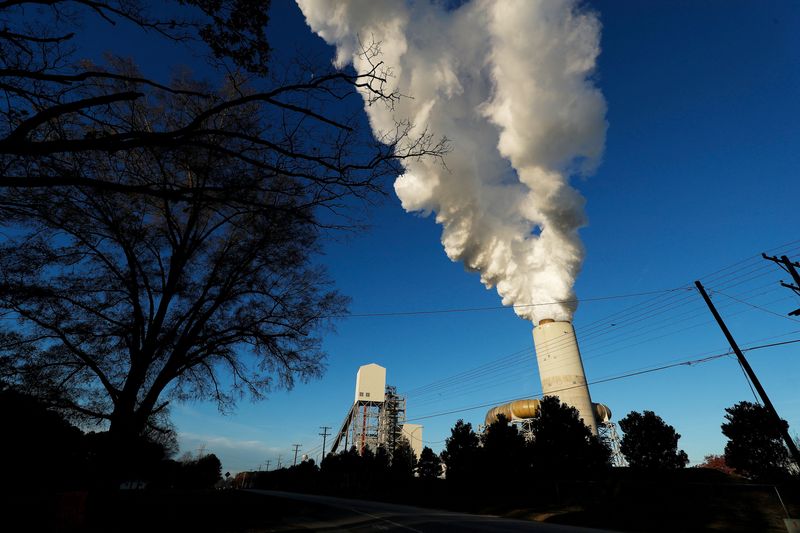NEW YORK (Reuters) - Duke Energy (NYSE:DUK) is pausing its assessment of certain U.S. energy infrastructure improvement loans, citing uncertainty over the future of funding under the Trump administration, according to a filing from last week.
The electric utility told North Carolina regulators in a letter on Nov. 27 that it would put on hold its work to determine the costs and benefits of tapping into the federal Energy Infrastructure Reinvestment Program.
"It is in the best interest of customers to pause any further efforts or expenditures until February, following the appointment of the new administration to gain clarity on the future of the EIR Program," Duke said in its filing with the North Carolina Utilities Commission.
The EIR includes low-interest loans, under the Inflation Reduction Act, to help companies transition away from high-carbon-emitting power sources like coal to cleaner or more efficient energy systems.
The viability of the IRA, which has been a key driver in the development of low- and no-carbon power supply since being signed into law in 2022, has been thrown into question since the election last month of Donald Trump, who will be sworn in as president on Jan. 20.
In North Carolina, coal-fired power plants are expected to be phased out in the 2030s to meet state climate-focused goals. Duke has plans to shift some of its coal-fired power production to natural gas and renewable sources like wind and solar.
EIR loans could help lower Duke's infrastructure buildout expenses and lower costs to consumers, said Michelle Carter, clean energy campaigns director at the North Carolina League of Conservation Voters.

"There are many more possibilities for the existing coal plants that we have in the state that could use the EIR program to transition to cleaner and cheaper energy much faster than Duke is currently doing," Carter said.
Duke was not immediately available for further comment.